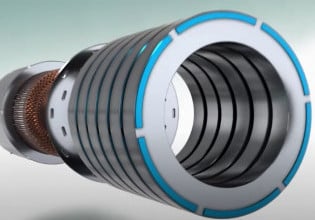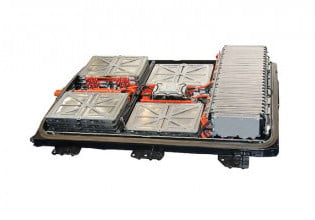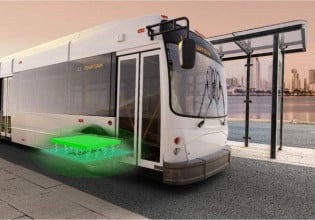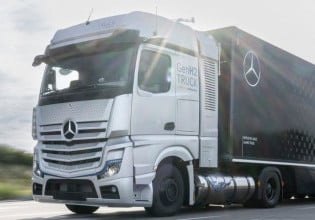There are media reports that General Motors (GM)’s electric vehicle, the Chevy Volt (reportedly scheduled for a late 2010 delivery date), may be experiencing some problems relating to its batteries. The nearly 300 lithium ion batteries in the Volt will be strapped together in a tight group between the seats, and although GM engineers are confident the individual batteries will function properly, they are not so exact as to how long the batteries will last or if they will overheat when they work together in a pack.
According to GM head Rick Wagoner, the company has also not decided if the batteries will be manufactured in the U.S., or in Asia, where battery tech is more advanced. Wagoner was recently making the rounds in the nation’s capitol seeking $25 billion in loans from the U.S. government to help GM build cutting-edge, clean-tech vehicles.
Questions are also being raised as to how much power will be drained when GM insulates and cools the batteries for warmer climates (such as in the western U.S.). There are also speculations that the Volt’s battery pack might push the car’s price to $40K or more.
An LG Chem unit is confident its next-generation lithium-ion batteries will meet the requirements for General Motors Corp’s all-electric Chevrolet Volt car, a senior executive said on Tuesday.
Compact Power Inc (CPI), a Troy, Michigan-based unit of the South Korean company, is one of two groups racing for the contract to build batteries for the the plug-in Volt, the centerpiece of GM’s effort to move away from gasoline-thirsty trucks and SUVs. The other contender is a consortium of Germany’s Continental AG and U.S.-based A123 Systems.
GM on Tuesday unveiled the production version of the Volt, a small, curvy four-seater, at its Detroit headquarters during an event to celebrate the automaker’s 100th anniversary.
Compact Power Chief Executive Prabhakar Patil told the Reuters Autos Summit in Detroit that Volt prototypes equipped with its lithium-ion batteries are already meeting the 40-mile all-electric cruising range targeted by GM.
"All of the tests and data that we have seen that GM is running and that we are running ourselves -- it’s performing as projected based on simulations," Patil said. "We are meeting the 40-mile electric range."
GM is designing the Volt to run for 40 miles (64 km) on a lithium-ion battery pack that can be recharged at a standard electric outlet. The car also includes a gas tank for trips longer than 40 miles.
The top-selling U.S. automaker aims to launch the Volt in November 2010. But skeptics, including Toyota Motor Corp, have questioned whether the crucial battery for the Volt could be made road-ready by a deadline even GM has conceded would be a stretch.
Patil said that while tests so far have shown no setback that could delay the launch schedule, one of the major challenges is to ensure the car will retain its targeted performance for the projected life cycle of 10 years.
"GM will be giving a 10-year 150,000 mile warranty on this vehicle, and obviously we don’t have 10 years of testing to say if it has 10 years of life," he said.
Widespread adoption of electric vehicles also depends on the ability to bring down the costs for the battery packs, which analysts estimate can add up to $10,000 to the cost of a vehicle.
Patil said the battery costs for the Volt could drop "significantly" if the production volume reached 100,000 units per year.
GM expects to manufacture 10,000 Volt cars in its first 12 months of production, ultimately increasing that to 60,000 a year.
Patil said he expects GM to pick a single battery supplier by year-end. If chosen, Compact Power would set up battery production in the United States, he said.
"The battery packs were always planned to be manufactured here," Patil said.
LITHIUM-ION DOMINATION
Lithium-ion batteries -- lighter, smaller, longer-lasting and capable of holding more power than the nickel-metal batteries which power the current gasoline-electric hybrids, are seen as key for the success of plug-ins such as the Volt.
Unlike traditional hybrids such as Toyota’s Prius, which twins battery power and a gasoline engine, plug-in hybrids will be capable of drawing power entirely from an electric motor.
Patil said he expects lithium-ion battery technology to dominate the hybrid electric car market for the next 15 to 20 years. As demand from the auto industry grows, Compact Power will generate up to $1 billion in sales in the next 10 years, he added.
Compact Power is also in discussions with other automakers on potential battery supply deals, Patil said. He declined to specify to which automakers the company is talking.
"We’ve seen a great deal of interest (from other automakers)," Patil said. (Reporting by Soyoung Kim and Nichola Groom, editing by Gerald E. McCormick)






